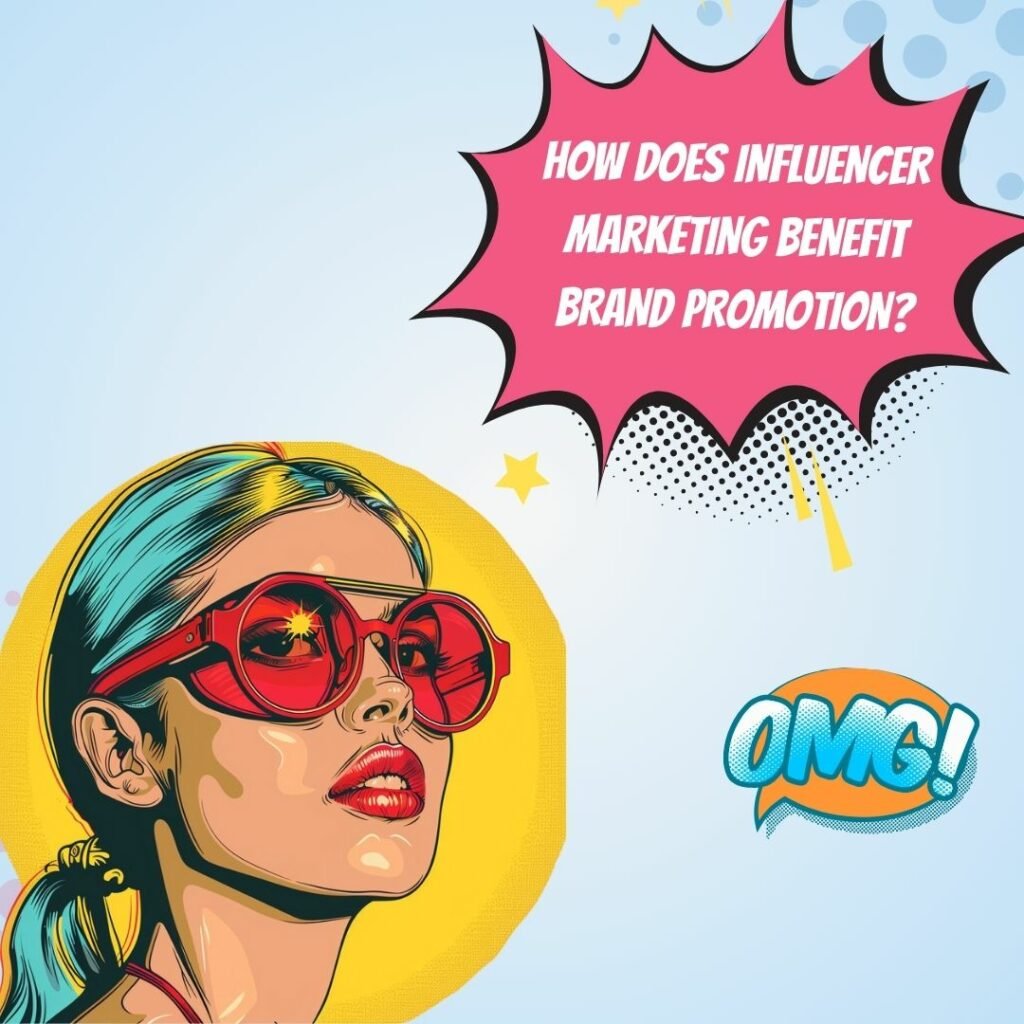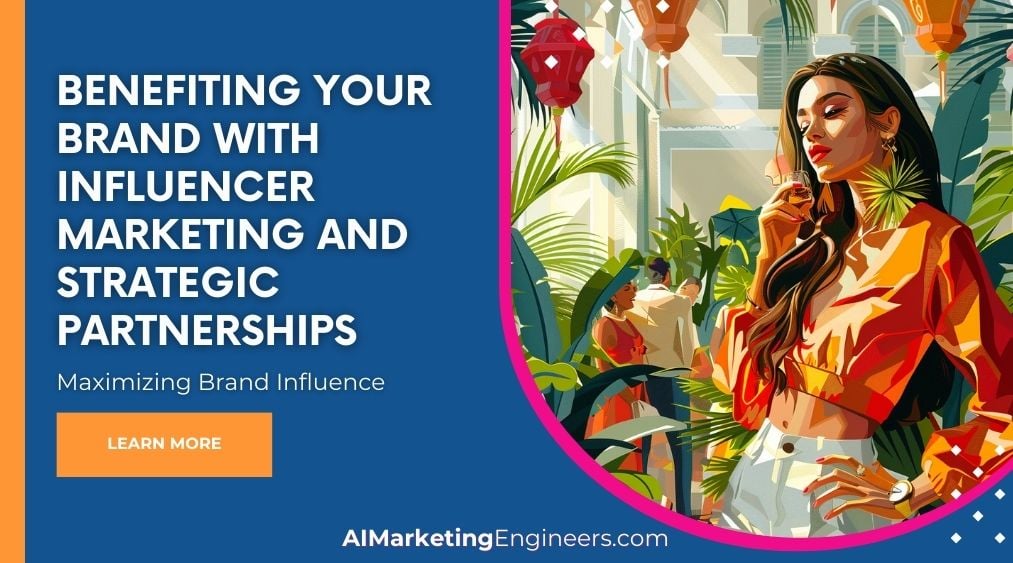Key Takeaways
✅ Leverage Influencers Across the Customer Journey: Instead of just focusing on the 'buy now' button, smart brands are tapping into influencers throughout the whole customer journey. This could mean teaming up with influencers for special membership drives or shoutouts that show existing customers some love. Picture this: a 20% boost in customer retention could lead to a profit increase by up to 95%, according to Bain & Company. Imagine leveraging influencer connections not just for direct sales, but for nurturing a loyal fan base that sticks around and spends more over time.
✅ Nurture Lasting Partnerships: Throw away the idea of the 'one and done' influencer campaign. Instead, think of crafting relationships with influencers as you would care for a flourishing garden: with attention and consistency. By weaving influencers into your brand's narrative on a regular basis, you're more likely to earn the trust of their followers. In fact, a study from Nielson found that 92% of people trust earned media, like recommendations from friends and family, over all other forms of advertising.
✅ Use Social Listening to Evaluate Partnerships and Iterate: Sharpen your ears and use social listening tools to catch the buzz about your brand. This isn't just eavesdropping - it's strategic intelligence gathering. By tracking how collaborations affect mentions, sentiment, and engagement, you can hone in on what's working. You can also discover influencers who are already fans of your brand and bring a genuine vibe to the marketing table. Marketing Dive reports that campaigns with relevant influencers can generate up to 11 times the ROI of traditional advertising.

Introduction
Are you looking to give your brand a serious leg up in the market? Have you ever wondered why some brands seem to have an uncanny knack for resonating with their audience? Well, unlock this mystery with Influencer Marketing and Strategic Partnerships, the dynamic duo that can catapult your brand from relative obscurity to household name status. In a world where consumers are bombarded by ads at every click, this innovative strategy stands out for its authenticity and ability to create genuine connections. Through real stories and experiences, influencers can weave your brand into the fabric of daily life, making your message not just heard, but felt.
In the following read, we're exploring fresh perspectives, the latest trends, and solid solutions to ramp up revenue and deliver a hefty return on your marketing spend. We're not just painting a dream here, we’re providing a roadmap to turn that into reality. With a promise of insightful nuggets and trailblazing info, this piece is your ticket to understanding and mastering the art of influencing your way to the top. Stick around, and let's reveal how you can build a brand that's not just seen but truly remembered.
Top Statistics
| Statistic | Insight |
|---|---|
| Influencer Marketing Industry Value: Reached $21.1 billion in 2023. | This growth signals that more brands are investing in the influencer space, recognizing the value it can add to their marketing mix. |
| Trust in Influencers: 61% of customers rely on influencers for product recommendations. | A significant indicator that a trusted voice can be more persuasive than traditional advertising. |
| Engagement Rates: Influencer posts achieve 4.7 times higher engagement than non-influencer content. | Shows the power of influencers to authentically connect with audiences and generate interest. |
| ROI of Influencer Marketing: Brands make $5.78 for each $1 spent on influencer marketing. | Affirms the financial upside, suggesting that strategically spending on influencer marketing can lead to substantial returns. |
| Micro Influencer Popularity: These influencers are sought after for their high engagement rates (average 2.8%) and authenticity. | Highlighting the trend of partnering with niche influencers who have a dedicated and engaged following for targeted campaigns. |
Understanding Influencer Marketing
Think of influencer marketing as a bridge between a trusted friend's recommendation and a celebrity endorsement. It's a way for brands to connect with potential customers through someone they already know, like, and trust online - the influencer. In the age of screens and scrolling, this form of marketing has become a key player for brands looking to stand out. It enables them to leverage the influencer's reach to promote their products or services.
Types of Influencer Marketing Opportunities
There are numerous pathways for brands to engage with influencers. Sponsored content is a go-to; it blends an influencer's style with a brand's message. With user-generated content, customers become the marketers, sharing their personal experiences with a product. Then there are trusted testimonials, where influencers give personal accounts of their experience with a product, lending credibility. Micro-influencers might have smaller audiences, but their word often carries more weight due to highly engaged followings. Beyond Instagram or Twitter, there are opportunities in niche content areas like YouTube videos, podcasts, and professional networks like LinkedIn.
How Ecommerce Stores Use Influencer Marketing to Scale
For online stores, influencer marketing is about more than just exposure. By leveraging referrals and brand visibility through trusted voices, businesses can significantly widen their reach. User-generated content can be more persuasive than traditional advertising, and testimonials lend authenticity that resonates with potential customers. Moreover, compared to some hefty advertising methods, influencer partnerships offer a cost-effective way to amplify their message and grow their audience.
Benefits of Influencer Marketing
Why are so many brands jumping on the influencer marketing bandwagon? Well, an effective influencer campaign can boosts brand awareness and attracts new customers, quickly and effectively. Additionally, influencers provide social proof, showing their audience that a real person is backing the offered products or services. This builds a foundation of trust and increases the likelihood of consideration when it's time to make a purchase.
Developing an Effective Influencer Marketing Strategy
Creating an impact through influencers isn't just about throwing money at the ones with the most followers. A strong influencer marketing plan takes careful consideration. It's about understanding the different influencer tiers—mega, macro, micro, and nano—and selecting the best fit for your brand. Avoid common pitfalls such as unclear goals or focusing too much on follower counts rather than genuine engagement. It's critical for brands to aim for long-term relationships with influencers, fostering a sense of authenticity through conversational messaging.
Employing influencer marketing is more than a promotional tactic—it's about crafting a narrative with the help of those who have the eyes and ears of your potential customers. It's no wonder that many brands view influencer collaborations not just as campaigns, but as strategic partnerships that benefit all involved. When done rightly, influencers can significantly propel a brand’s reach, helping to narrate their story to a wider, yet targeted, audience.
AI Marketing Engineers Recommendation
Recommendation 1: Leverage Micro-Influencers for Deeper Engagement: Despite the allure of partnering with celebrities and macro-influencers, data suggests that micro-influencers — those with 10,000 to 50,000 followers — can often provide higher engagement rates. A study by Markerly showed that as an influencer's follower total rises, the rate of engagement (likes and comments) with followers decreases. Therefore, partnering with micro-influencers can not only be cost-effective but can also yield a more engaged audience, ultimately benefiting your brand with influencer marketing and strategic partnerships.
Recommendation 2: Integrate Influencer Insights into Product Development: Current trends show that influencers are more than just marketing channels; they're becoming collaborators in product development. By integrating influencers into the creation process, brands can leverage their insights to tailor products that meet the tastes and needs of their audience. According to Launchmetrics, 62% of professionals state that influencer engagement is effective in building brand/product awareness. Thus, involving influencers early on can result in authentic endorsements and increased anticipation for product releases, driving consumer interest and sales.
Recommendation 3: Enhance Campaigns with Influencer Marketing Platforms: With the influencer marketing industry projected to grow to approximately $13.8 billion in 2021, according to Statista, the need for efficient campaign management becomes crucial. Utilize influencer marketing platforms like AspireIQ, Upfluence, or Traackr to streamline the process of identifying, managing, and analyzing influencers. These tools offer valuable metrics and insights that assist in measuring the success of your partnerships and ensuring a good match between the influencer's audience and your brand, maximizing the ROI of each campaign.
Relevant Links
- Find Your Seoul Mates: The Ultimate Guide to Influencer Marketing in Korea
- SEO for E-Commerce in South Korea: Strategies for Online Retailers
- Video Marketing Trends in South Korea: Platforms and Content That Resonate
- Understanding WeChat: The Backbone of Chinese Digital Marketing
- The Power of Performance Marketing in India: Strategies for Success
Conclusion
As we've journeyed through the terrain of influencer marketing and strategic partnerships, we've uncovered not only their significance but also the tangible benefits they can bring to your brand. We live in a time where trust and authenticity are at a premium, and these marketing avenues offer a unique way to humanize your brand and forge meaningful connections with consumers. Engaging the services of an influencer isn't just about flashy endorsements—it's about capitalizing on a felt sense of community and shared values.
From boosting brand awareness to enhancing credibility, the strategic use of influencers can steer your brand toward appreciable growth. With ecommerce stores successfully leveraging user-generated content and trusted testimonials, we see a cost-effective model that not only piques interest but also drives sales. Yet, for all the allure, it's crucial to navigate this space with a well-thought-out strategy, aligning efforts with influencers that resonate with your brand ethics and audience.
As marketing evolves, remember this: partnerships based on transparency and mutual value can dramatically shift how customers perceive and interact with your brand. Embrace a future where marketing isn't just about broad reach, but about striking the right chords with an engaged and receptive audience. So, are you ready to take your first step into a broader world of strategic partnerships and enrich your brand narrative? Let the journey begin.
FAQs
Question 1: What is influencer marketing?
Answer: Influencer marketing is about brands teaming up with folks who have a strong presence on social media. The idea is to work with these influencers to show off your products, let people know about your brand, and connect with new folks who might be interested in what you’re selling.
Question 2: Why is influencer marketing important for ecommerce brands?
Answer: For online shops, influencer marketing is super important because it helps to prove that your brand is trustworthy, gets your name out there, and actually helps you sell stuff. It's all about using the trust that influencers have built with their fans to encourage them to shop your products.
Question 3: What are the benefits of influencer marketing?
Answer: There are lots of good things that come from influencer marketing, like:
- Making more people aware of your brand.
- Saving money while potentially making way more in return.
- Reaching the right kind of people who are likely to be interested in your stuff.
- Creating lasting partnerships with influencers.
- Giving people the sense that your brand is genuine and reputable.
- Getting people more engaged and finding new potential customers.
Question 4: How do I measure the success of an influencer marketing campaign?
Answer: You can tell how well your influencer marketing is doing by looking at things like how much people are interacting with the posts, if you're getting more followers, if more people are visiting your website, if sales are going up, and what kind of return you're getting on your investment. The key is to be really clear about what you want to achieve and then watch and learn from the results.
Question 5: What types of influencer marketing opportunities are available?
Answer: There’s a bunch of different ways to get involved with influencer marketing, like:
- Paying for influencers to make posts, videos, or blog entries.
- Sharing content that influencers make about your products on your own channels.
- Working together with influencers to feature your products.
- Getting your brand seen at events sponsored by influencers.
Question 6: How do I find the right influencers for my brand?
Answer: Look for influencers whose values match up with your brand, who speak to the kinds of people you want to reach, and who fit with the specific area you’re focused on. Make sure to check out the details, like how engaged their followers are, the quality of their posts, and who's actually following them.
Question 7: How do I create an effective influencer champaining strategy?
Answer: Start by figuring out what you're aiming to achieve. Do your homework to make sure your goals line up with what the influencer is all about and who follows them. Work together with influencers when you’re making plans and be ready to tweak your strategy based on what the data is telling you and what’s going on in the market.
Question 8: What are some common mistakes to avoid in influencer marketing?
Answer: Here are some boo-boos you’ll want to steer clear of:
- Not being clear about what you're hoping to get out of the campaign.
- Not doing enough digging to make sure influencers are right for your brand.
- Cramping influencers' style by not letting them do their thing.
- Not being upfront about which content is paid for.
- Not keeping an eye on your campaign as it unfolds to make adjustments along the way.
Academic References
- Sprout Social. (2021). The Sprout Social Index, Edition XVII: Accelerate. Sprout Social Reports. This influential report underscores the rising prominence of influencer marketing, revealing that a significant majority of social marketers attribute a notable impact on their brand's efforts to these partnerships.
- De Veirman, M., Cauberghe, V., & Hudders, L. (2017). Marketing through Instagram influencers: the impact of number of followers and product divergence on brand attitude. International Journal of Advertising, 36(5), 798-828. This study offers insight into how influencer marketing can amplify a brand's reach and enhance consumer perceptions, highlighting the influence of follower counts and the nature of products being promoted.
- Brown, D., & Fior etta, I. (2011). The Rise of Influencer Marketing: How to identify and engage with influencers [White paper]. Influencer Marketing Hub. This white paper elaborates on the multifaceted benefits of influencer marketing from brand visibility to SEO, importantly capturing top-level corporate interest.
- Lim, X. J., Radzol, A. R. M., Cheah, J.-H., & Wong, M. W. (2017). The impact of social media influencers on purchase intention and the mediation effect of customer attitude. Asian Journal of Business Research, 7(2), 19-36. Exploring the eCommerce landscape, this research provides evidence of how influencers effectively sway purchase intentions through their endorsements, nurturing a ready-to-buy audience segment.
- Lou, C., & Yuan, S. (2019). Influencer Marketing: How Message Value and Credibility Affect Consumer Trust of Branded Content on Social Media. Journal of Interactive Advertising, 19(1), 58-73. This article dissects the potency of influencer marketing, highlighting how the relationship built on trust can yield cost-effective strategies and significant returns on investment for brands.












